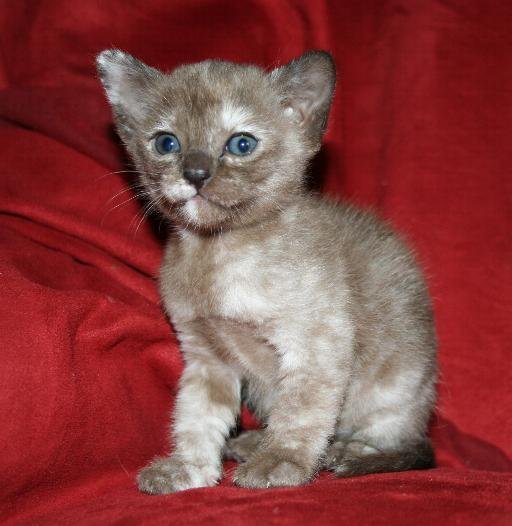At this stage in their development the kittens will be eating considerable amounts of food and you should continue to feed them varying textures and tastes. Dry food can be made available at all times and soft food including meat, chicken and fish four times a day. Quantities can be adjusted on the basis of the size of the kittens and whether the dishes are being cleaned.

Dependent on mother’s attitude to kittens with sharp little teeth they may still be allowed to suckle but they no longer need to depend on her. Her role now is that of teacher. She will still groom them, but also they will be grooming themselves. They should be using a litter tray only now. Mother will continue to play with them, teaching them stalking, pouncing, climbing and play-fighting. If she is allowed out, don’t be surprised if she brings them a mouse or two!
The kittens will be more adventurous and will climb anything to explore further so you need to take care that the environment is safe and they can’t climb to really high places where the only way down is to fall. Cords on blinds can be very hazardous as can the danger of falling down the back of wooden furniture and radiators. Kittens can also do serious damage to curtains so these should be tied up or, preferably, removed.
They will be enchanting (and highly amusing) to all who come into their world and hours will easily disappear just watching them. However, there is still work to do.
You will need to: –
- advertise your kittens for sale if they are not already booked.
- make sure that the kittens have been wormed
- make an appointment with your Vet for a health check and a first vaccination at 9 weeks of age and a second at 12 weeks
- register them with the GCCF
- prepare diet sheets and pedigrees for the new owners
